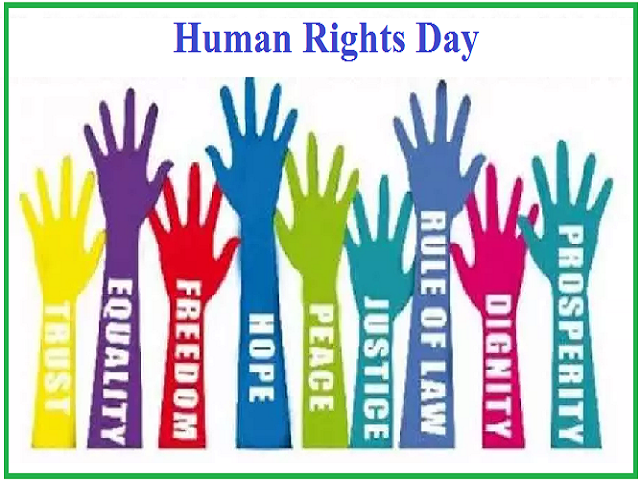
On the auspicious occasion of Human Rights Day, we should come together to celebrate the inherent dignity and equal rights of everyone worldwide. However, the current global situation is an unprecedented challenge to human rights. 10th December is marked as an important day. When the Universal Declaration of Human Rights was adopted in 1948, it established a visionary framework, recognizing all human beings’ inalienable rights and freedoms. This day is a poignant reminder of our commitment to promoting justice, equality, and fundamental human rights. When we come together in solidarity, reflect on progress, acknowledge enduring challenges, and recommit ourselves to the ongoing pursuit of a world in which the rights of every person are respected and protected. We respect the principles outlined in this Declaration and work collectively towards building a more just, inclusive, and compassionate world for present and future generations.
Recently, the US has refrained from addressing or commenting on its elections, particularly Bangladesh. At the same time, the Bangladesh Mission in Washington has expressed concern about the possible impact of the new US labor policy on Bangladesh. This apparent silence by the US is causing consternation and diplomatic anxiety in diplomatic circles, with many interpreting it as a foreshadowing of possible negative consequences for Bangladesh.
This year, Bangladesh’s 2023 Universal Periodic Review (UPR) at the UN Human Rights Council in Geneva, Switzerland, was an essential moment of global commitment to promoting and protecting human rights. The review examines the human rights situation in Bangladesh, highlighting notable achievements and continuing challenges.
Commendable achievements: The UPR recognized Bangladesh’s significant progress in specific areas of human rights, particularly gender equality and women’s empowerment. Efforts to reduce child marriage rates are also duly acknowledged, reflecting the government’s commitment to fostering positive social change. Furthermore, Bangladesh’s response to the Rohingya refugee crisis is praised, and the country’s resilience in dealing with humanitarian challenges is emphasized. Recognizing the burden of hosting many displaced persons, the international community emphasized international cooperation in managing such crises.
Challenges to be addressed: The review also highlights ongoing challenges that demand immediate attention. Concerns were also raised about freedom of expression and the press, citing censorship and restrictions on media outlets. The UPR called for re-evaluating laws and practices that impede the free flow of information and expression, stressing the importance of preserving democratic values. Additionally, the situation of human rights defenders and activists was brought to the fore by reports of harassment and intimidation. The UPR emphasized the need for a safe and enabling environment for those who work tirelessly to promote and protect human rights.
An exciting finding emerges in an article by Zobair Alam and Ali Mashrafe(2023). Issues relating to the judiciary and access to justice were highlighted there, emphasizing the imperative of an independent and transparent judiciary. The challenges underscore the complexities associated with law and national politics. The authors critically assess the gap between existing legal provisions and their practical implementation, providing insight into the barriers that hinder effective human rights enforcement in Bangladesh.
Insights from “Fifty Years of Human Rights Enforcement”: Alam and Mashrafe’s article discusses the historical landscape of human rights enforcement in Bangladesh since the country’s independence in 1971. It highlights the challenges posed by a significant disparity in legal frameworks, emphasizes the theoretical foundations of human rights as legal and political instruments, and sheds light on their practical implementation. The authors advocate legislative, administrative, and judicial reforms to bridge this gap, emphasizing the critical role of relevant stakeholders, including the legislature, executive, and judiciary.
In conclusion, Bangladesh’s 2023 UPR is a valuable snapshot of the nation’s progress and challenges in human rights. While laudable achievements were acknowledged, persistent problems demand concerted efforts and a collaborative approach to implement human rights effectively. The UPR findings and insights provided by Alam and Mashrafe call for continued attention to the complexities associated with legal frameworks and national politics, provide a roadmap for improvement and emphasize the shared responsibility of all stakeholders in maintaining and protecting humanity.
[Author: Delwar Jahid, Freedom Fighter, Senior Research Faculty Member of University, President, Bangladesh North American Journalists Network, and Executive Director, Step to Humanity Association, resident of Canada]
